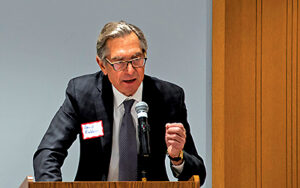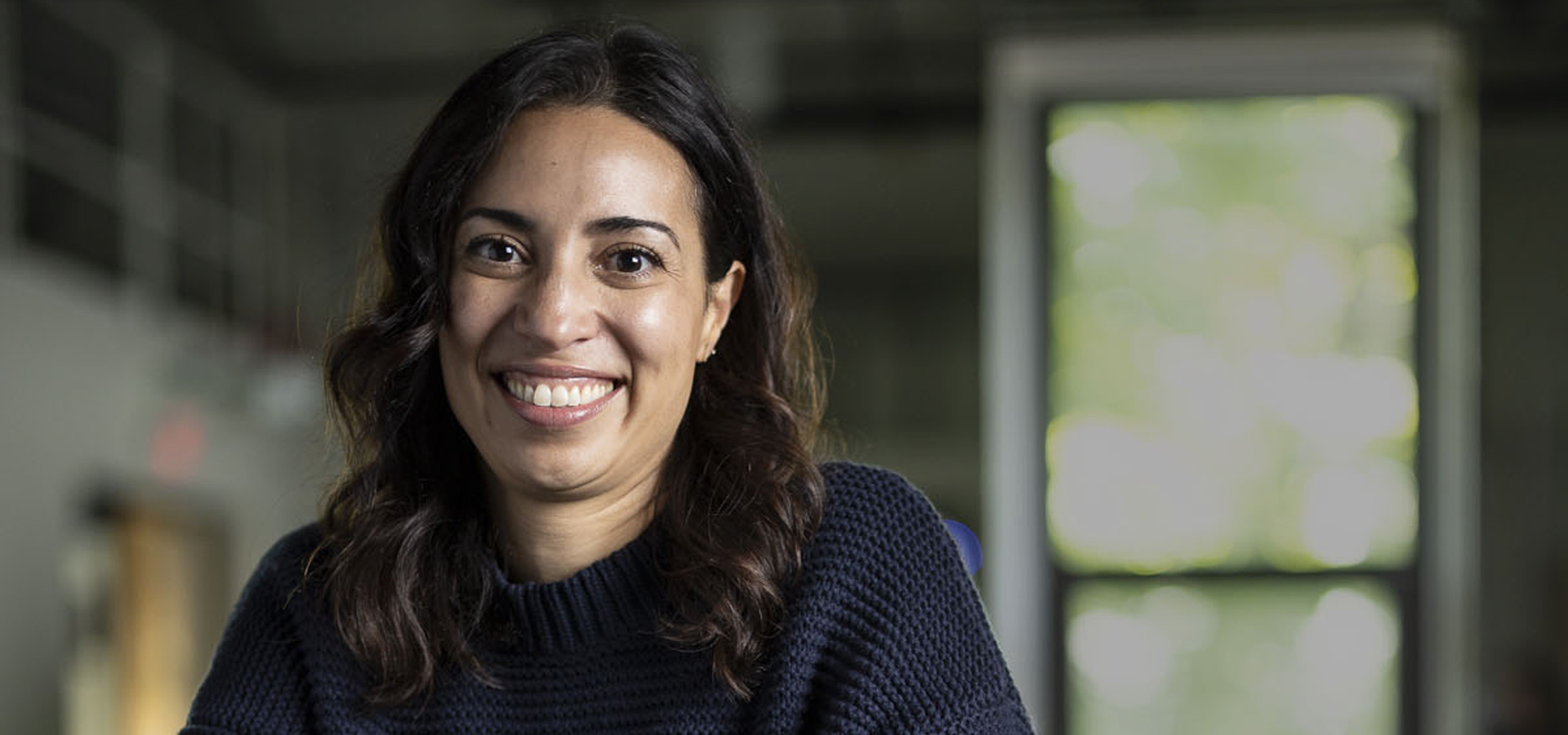In Brief: Exciting news, scholarship, and announcements from around campus

Beginning in fall 2023, a new scholarship program will offer a group of exceptional students from Africa the opportunity to join the Wesleyan community. The newly announced Wesleyan African Scholars Program will welcome a select group of students from Africa each year, providing each with a four-year 100% cost of attendance scholarship. “As part of the University’s ongoing efforts at internationalization, we will be bringing more talented students from Africa into the stimulating and supportive world of Wesleyan,” said President Michael S. Roth ’78.
Wesleyan’s Jewett Center for Community Partnerships convened a group of scholars, public policy specialists, funders, and activists on April 13 to explore what community safety is, what it can look like, and the systemic barriers in place preventing an ideal version of that goal. The conference, Re-imagining Community Safety, showed the challenges in creating a more just world. The Center for Justice Innovation was a co-sponsor of the event.
The College of the Environment (COE) has been named in honor of Essel ’66 and Menakka Bailey. The Baileys are long-time Wesleyan supporters whose passion for the environment and the work of the COE has greatly enriched the experience of our students and faculty. “The generosity of Essel and Menakka Bailey has created opportunities for Wesleyan students and faculty to work towards creating a world that is environmentally just, where people are food secure, and where we can protect the critical resources of the planet,” said Professor Barry Chernoff, director of the Essel Bailey ’66 and Menakka Bailey College of the Environment.
 Assistant Professor of Theater Katie Pearl produced the Connecticut premiere of her company PearlDamour’s music theater experience, Ocean Filibuster, at the Center for the Arts in May, exploring the intimate, critical relationship between humans and the ocean. Believing that when engaging with some of the complicated topics offered in the theater it’s not enough to just stage the play alone, Pearl collaborated across Wesleyan’s campus to present Ocean Filibuster: Art and Action—a semester of art and activism exploring environmental issues.
Assistant Professor of Theater Katie Pearl produced the Connecticut premiere of her company PearlDamour’s music theater experience, Ocean Filibuster, at the Center for the Arts in May, exploring the intimate, critical relationship between humans and the ocean. Believing that when engaging with some of the complicated topics offered in the theater it’s not enough to just stage the play alone, Pearl collaborated across Wesleyan’s campus to present Ocean Filibuster: Art and Action—a semester of art and activism exploring environmental issues.
Assistant Professor of Computer Science Sebastian Zimmeck organized the Shasha Seminar for Human Concerns: A Roadmap for Internet Privacy in the spring to address the increasingly challenging topic of internet privacy. Experts from Wesleyan, NYU, Google, Harvard, Boston University, Carnegie Mellon, and more looked beyond the technological challenges of internet privacy during the two-day seminar, considering the topic’s sociological and business aspects.The Shasha Seminar is endowed by James Shasha ’50, P’82, GP’15.
The 2022 midterm elections featured a record volume of television advertising, while candidates in federal races spent almost $150 million on digital ads, according to a post-mortem analysis from the Wesleyan Media Project. “In the final weeks of a campaign, practitioners want to spend all of their money, and they will be much more concerned about winning than about efficiency,” said Erika Franklin Fowler, professor of government and co-director of the Wesleyan Media Project. “Television is still an easy place to spend where you can reach a large audience quickly.”
The Center for the Study of Guns and Society at Wesleyan University convened leading researchers and practitioners from Princeton, Yale, Georgetown, The Washington Post, and beyond on May 5 for a one-day symposium to address questions including how the proliferation of guns in US homes shaped historical patterns of domestic (physical, sexual, and psychological) abuse.
 David Rabban ’71, a professor at the University of Texas at Austin School of Law, delivered a wide-ranging exploration of academic freedom and freedom of speech at the annual Hugo L. Black Lecture on Freedom of Expression. “One of the things I loved about Wesleyan when I was here was the commitment of the faculty and administration to free speech and academic freedom,” Rabban said. The lecture is endowed by Leonard S. Halpert ’44.
David Rabban ’71, a professor at the University of Texas at Austin School of Law, delivered a wide-ranging exploration of academic freedom and freedom of speech at the annual Hugo L. Black Lecture on Freedom of Expression. “One of the things I loved about Wesleyan when I was here was the commitment of the faculty and administration to free speech and academic freedom,” Rabban said. The lecture is endowed by Leonard S. Halpert ’44.


